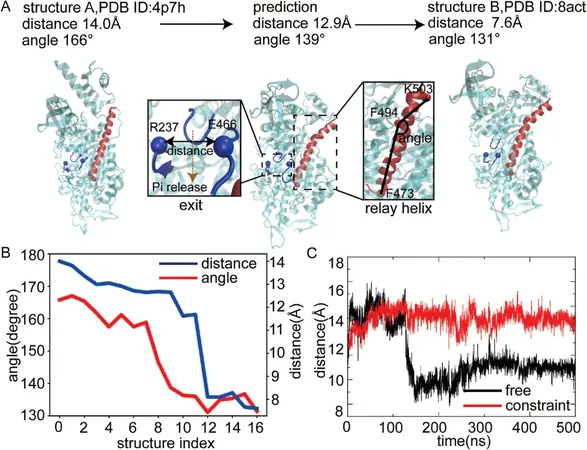
Promising New Treatment for Stage IIIA Lung Cancer: What You Need to Know!
2024-10-23
Author: Nur
Exciting new findings from a groundbreaking Spanish study could change the way we treat patients with stage IIIA non-small cell lung cancer (NSCLC). Published in The Lancet Oncology, a recent analysis of the NADIM phase II trial led by Dr. Mariano Provencio and his team reveals that preoperative chemotherapy combined with the immunotherapy drug nivolumab yields impressive long-term outcomes for patients.
What Did the Study Entail?
The NADIM trial included 46 participants who were enrolled between April 2017 and August 2018. These patients received an innovative neoadjuvant therapy regimen comprising paclitaxel (200 mg/m²), carboplatin (AUC 6), and nivolumab (360 mg) every three weeks for three cycles, prior to their surgery. Following surgical intervention, they continued a personalized adjuvant nivolumab treatment for a full year, receiving doses every two weeks for four months and then monthly for another eight months. This comprehensive strategy aimed to address NSCLC in a more aggressive but calculated manner, focusing not just on immediate results but long-term survival as well.
Impressive Results: What Did the Study Find?
After a median follow-up period of 60 months, the results were promising. The study reported a five-year progression-free survival rate of 65% and an overall survival rate of 69.3% among all subjects. In a specific subgroup of 37 patients who actually underwent tumor resection and received at least one cycle of adjuvant therapy, the outcomes were even more striking—75.4% progression-free survival and 78% overall survival at the five-year mark. These figures suggest that the combination therapy not only improves patient prognosis but could potentially extend life expectancy significantly.
Moreover, the study monitored adverse events related to treatment. About 30% of patients experienced grade 3 or higher treatment-related side effects during the neoadjuvant treatment phase, while 19% had similar issues during adjuvant treatment. Notably, the common problems included elevated lipase levels and febrile neutropenia, but the researchers did not report any treatment-related deaths or concerning long-term toxicities.
Conclusion: A Beacon of Hope for Lung Cancer Patients
The findings from this study provide a glimmer of hope for patients grappling with stage IIIA NSCLC. Dr. Provencio and his collaborators concluded that their findings reinforce the potential of perioperative chemoimmunotherapy as a highly effective treatment strategy, bolstering its use in clinically resectable cases. As ongoing research continues to explore novel therapeutic approaches, patients and healthcare providers may be more optimistic about managing lung cancer in the coming years.
Stay tuned as further studies analyze the broader implications of these promising results! Will this treatment revolutionize lung cancer care? Only time will tell!

 Brasil (PT)
Brasil (PT)
 Canada (EN)
Canada (EN)
 Chile (ES)
Chile (ES)
 España (ES)
España (ES)
 France (FR)
France (FR)
 Hong Kong (EN)
Hong Kong (EN)
 Italia (IT)
Italia (IT)
 日本 (JA)
日本 (JA)
 Magyarország (HU)
Magyarország (HU)
 Norge (NO)
Norge (NO)
 Polska (PL)
Polska (PL)
 Schweiz (DE)
Schweiz (DE)
 Singapore (EN)
Singapore (EN)
 Sverige (SV)
Sverige (SV)
 Suomi (FI)
Suomi (FI)
 Türkiye (TR)
Türkiye (TR)